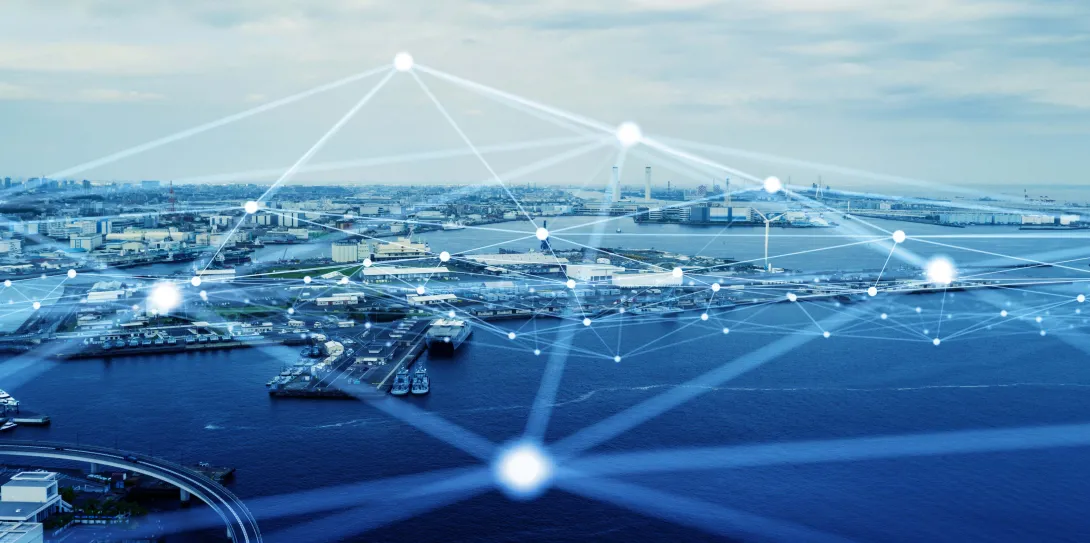With over 80% of the volume of international trade in goods carried by sea, there is no doubt that the maritime sector is the critical engine of the global economy. Ports and terminals sit within this as the backbone of global trade, facilitating the movement of goods across borders and providing vital bases to keep trade flowing.
However, our research has found that half of all maritime incidents we recorded in 2022 occurred within the confines of ports or terminals, underscoring the huge challenges and risks facing the modern industry and highlighting the need for elevated port risk management practices to meet these.
As part of our ambition to create a zero harm maritime industry, we have dedicated considerable time to understanding the most pressing challenges port and terminal operators face. The result of that is our new port risk management offering, RightPORT, a next-generation technology solution designed to solve these challenges and revolutionise how ports and terminals navigate the complexities of vessel pre-arrival preparations.
Automating the port risk management process
Manual due diligence and pre-arrival preparations for incoming vessels can be time-consuming and fragmented for port operators. Information is often scattered, and operators may lack the comprehensive data and time needed to plan effectively, leading to disruptions and costly incidents.
RightPORT risk solutions provide a fully automated port risk management solution, offering a full view of vessels' risk profiles before they reach the port and a one-stop shop, centralising all the information needed in one place. This enables proactive risk mitigation and supports efficient resource allocation, berth management, and operational processes. More importantly, man-hours typically taken up by manual processes can be redirected to effective planning, reducing the likelihood of incidents.
The use of integrated digital forms and terminal questionnaires facilitates seamless communication between ports and incoming vessels, bringing further efficiency to the process. Furthermore, by tapping into RightShip's unparalleled maritime vessel, incident, and company database, RightPORT risk solutions provides insights that may not be available to ports and terminals using manual processes, leading to more significant insights and improved port risk management outcomes through enhanced decision-making.
A bespoke approach
Of course, no two ports and terminals are the same, and the risks they face can vary widely. For some, there may be a higher emphasis on managing noise pollution; for others it may be improving their environmental impact on local communities or dealing with a specific geographical challenge.
This means that a one-size-fits-all solution can’t provide the tailored support which is needed for effective port risk management. RightPORT risk solutions have been developed to be tailored to the exact needs of its users, focusing on 12 key categories, each with various risk rules and areas of consideration which can be applied in a bespoke fashion for each individual user.
By collaborating closely with individual ports and terminals to understand their specific needs and challenges, we enable operators to select and configure rules that best suit their circumstances. The product draws on data from over 80 existing port and terminal customers, 33,000 global feedback reports from ports, and rating data on more than 50,000 commercial vessels, ensuring operators have access to deep insights tailored towards their own bespoke port risk management challenges.
Building a collaborative ports and terminals sector
With hundreds of major facilities spread across every corner of the global trade network, ports and terminals are highly reliant on each other to ensure effective operations and keep the wheel of global trade spinning. Without established channels to pass on information, it can often be that dots are not joined, and valuable time is lost from one port to another on pre-arrival checks, where a simple heads-up from another port could have flagged an issue ahead of time.
Building collaboration across the industry is a massive focus for us all. We have developed RightPORT risk solutions to include a knowledge-sharing module that encourages ports to communicate and share insights. By pooling their knowledge, ports can address challenges related to specific vessels, improve operations, and elevate industry standards. Ultimately, this industry collaboration can raise the port risk management practices of the full industry in tandem and really reduce the collective risks the sector faces.
Environmental regulations and port risk management
Another pivotal trend in the maritime industry is the increasing emphasis on environmental regulations as ports and terminals work to meet their own emissions targets or those set by the legislations in which they operate.
To address this trend, we introduced our Maritime Emissions Portal (MEP) for ports. MEP leverages established technologies, including AIS tracking and validated data, alongside our proprietary emissions methodology to generate detailed emissions inventories per vessel, enabling ports to make informed decisions and formulate strategies to reduce emissions.
By combining the two solutions of RightPort and MEP, operators have access to a complete and comprehensive risk management solution, with automation and technology at its core to improve practices and outcomes and meet the challenges posed by the modern industry.
Learn more about RightPORT directly from our product team in our video podcast.
